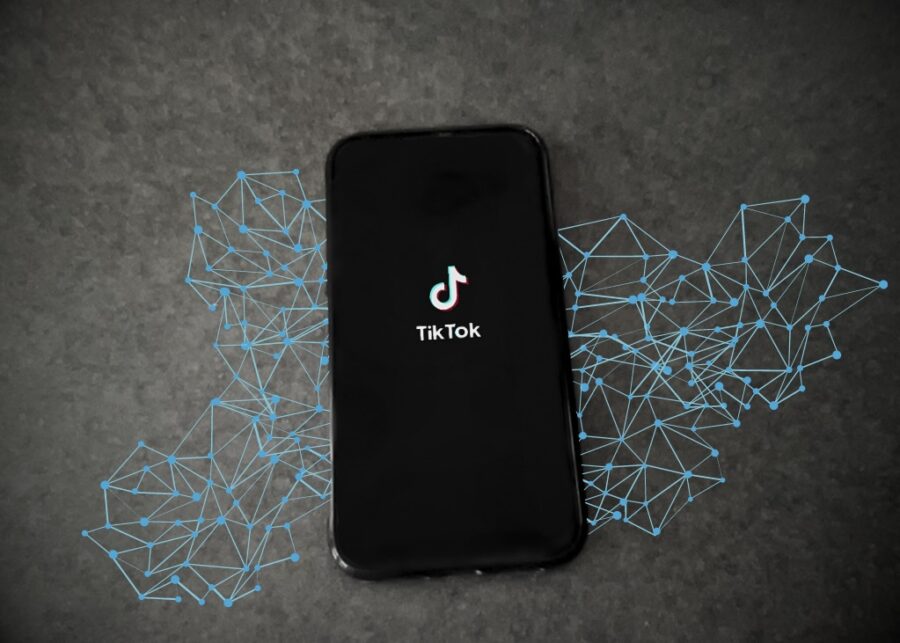The RESTRICT Act to Ban TikTok, a Trojan Horse for the Patriot Act 2.0
While the Federal government claims that the RESTRICT Act is targeted at banning TikTok, the bills contents appear to show otherwise, granting them much more surveillance power of citizens’ data.
June 7, 2023
Over the past several years, the topic of banning TikTok has increasingly become more and more heated. In the month of March, Congress proposed a bill in the name of banning TikTok. Despite them claiming that to be the intention, the bill gives that type of power to a person that has previously said she does not believe the app should be banned, and also gives great power to the Federal government as a whole.
While Section (3) (a) of the RESTRICT Act gives power to the Secretary of Commerce, Gina Romaindo, to “identify, deter, disrupt, prevent, prohibit, investigate, or otherwise mitigate” property within the U.S. government, Secretary Romaindo has expressed previously that she is not interesting in banning the app.
“The worry is the closer we get to next year’s election, the more political theater it will become,” Romaindo said in March of 2023.
On top of expressing her concern regarding Democrats losing “every voter under 35 forever,” she also said, “passing a law to ban a single company is not the way to deal with this issue… however much I hate TikTok… this is America.”
Additionally, the bill expands the powers of the Federal government immensely, as the bill reads that it intends to give the Secretary of Commerce the ability to “review and prohibit certain transactions between persons in the United States and foreign adversaries, and for other purposes.”
It later defines “other purposes” as “any other transaction… subject to regulations prescribed by the Secretary,” and then again defines the term within the bill as “current, past, or potential future transaction.”
Additionally, in some areas rather than specifying the powers it would give the Secretary of Commerce, it simply says that it grants the Federal government as a whole certain powers.
Another concern regarding the bill is if it could apply to VPNs, as the bill states that “no person may… take any other action with intent to evade the provisions of this Act,” and the point of the bill is to stop anything the government decides to consider a national security threat.
Violations of any of these provisions can lead to as much as 20 years of jail or up to $1 million in fines. For merely being deemed a potential national security threat, however, the federal government is then given the ability to access wireless networks, electronic applications, satellite payloads, cable access points, cloud-based storage, electronic transactions, and much more. The bill would also allow the government to take any action deemed necessary seemingly without due process.
Sociology teacher Shaun Patrick, he viewed much of the bill’s language as political theater, saying that Congress is “latching on to something that most Americans agree on and are not a fan of a company with ties to the CCP (Chinese Communist Party)… and get people to believe what you’re trying to ban, but then not really do so in the actual bill.”
He also called it the “Patriot Act 2.0.”
“It’s basically taking our digital freedoms… and then basically taking those digital footnotes and stamping them down. Much like what happened whenever we were talking about the Patriot Act in terms of people’s freedoms.”
Patrick also said that he thought the potential restrictions on VPNs could be harmful as there “are people who use it for legitimate reasons.”
He also said when it came to the federal government potentially gaining power over people’s transactions that he was “Totally against that.”
“There is no reason that the federal government should be able to say what or where I can transact, when I can’t transact, or how I transact,” Patrick said. Patrick went on to speculate that some of the transactions the government could be trying to go after could have to do with cryptocurrency.
Sophomore Quinntes Rider expressed frustration over the bill.
“Why would they give that power to someone that doesn’t want to [ban the app]? It’s stupid,” Rider said.
Rider also said he felt that it was “harsh” to potentially be put in jail over a VPN.
He also said that the government shouldn’t control how people spend their money, and that people should instead just face consequences for the actions they choose to make if it is for illegal reasoning. “People should be able to do whatever they want with their own money. I wouldn’t want someone controlling what I can or can’t buy… [regardless of where it goes] it’s my money. If I make that decision, I make that decision.” Rider also said that he felt the RESTRICT Act grossly overreached.
“It’s gonna make everyone just feel even more like we’re being controlled,” he said.
Senior Austin Kirton spoke on the RESTRICT Act as well, saying that it shows just how “shady” the government is.
“I think this is just another thing for the government to get all up in our business and watch our every movement,” he said. “They are already secret enough and don’t tell us a lot, for example the “spy balloons” [the other month].”
Kirton said that he felt that the RESTRICT Act does overreach because “that’s a little personal… and weird that they would [want to] do something like that.”
While the topic of TikTok being banned has been widely debated, those that are aware of what the RESTRICT Act is on all sides of the political spectrum seem to nearly all be in unanimous opposition to the bill, meanwhile, it has bipartisan support from both sides of Congress.
The concern for the American people is the power this bill seems to give the federal government as it uses extremely broad language, disguising it as something it is not and claiming it is in the name of national security. It is for these reasons that many on the internet have begun calling the bill the “Patriot Act for the internet.” The full bill can be viewed here.


